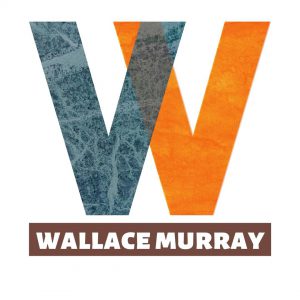Psilocybin therapy for Depression appears to have a curious effect on the Brain’s Response to Music
Patients tend to have a stronger brain response to music the day after receiving psilocybin-assisted therapy, according to new research published in the Journal of Affective Disorders. The stronger response to music was related to how intense the psychedelic experience felt during the therapy. The new findings provide some of the first scientific insights into the potential effects of psychedelic therapy on neural responses to music.
Psilocybin is a naturally occurring psychedelic substance found in certain species of “magic” mushrooms. Psilocybin-assisted therapy involves the use of the substance in a controlled therapeutic setting to treat various mental health conditions.
“Psychedelic therapy for depression is a promising new treatment option and seems to be very effective, but we don’t have much information about exactly how it works,” explained study author Matt Wall, the head of MRI Applications at Invicro London and honorary senior lecturer at Imperial College London.
“Music is a generally pleasant emotional stimulus for most people, and so we assessed whether the response to music changes in a group of patients after psychedelic therapy, using a brain-scanning technique called functional magnetic resonance imaging (fMRI).”
Wall and his colleagues analyzed data that was collected as part of an open-label feasibility trial investigating the safety and efficacy of psilocybin for treatment-resistant depression. The study included 19 participants (13 males and 6 females) aged 27 to 64 years who had a diagnosis of moderate to severe depression. Psilocybin was administered in two therapy sessions: a low dose (10mg) in the first session and a high dose (25mg) in the second session one week later.
During the psilocybin therapy sessions, patients lay with their eyes closed and listened to music, which followed a specified playlist, including ambient, contemporary classical, and traditional/ethnic pieces. The therapists adopted a non-directive, supportive approach throughout the sessions.
The participants underwent fMRI brain scans one week before the psilocybin therapy session and the day after the second psilocybin therapy session. The researchers used a technique called amplitude of low-frequency fluctuations (ALFF) to measure brain activity during resting-state conditions (no-music) and while listening to music.
“We used a somewhat unusual way of analyzing the data in this study called ALFF, which worked really well at isolating the music-related brain activity in the auditory cortex, which was a little surprising,” Wall said. “This is a very flexible analysis technique so that might mean we could usefully apply it to other fMRI data.”
The music stimuli used in the study were edited compositions, which were played through MRI-compatible headphones during the scans. The order of the playlist was randomized across participants, and two different tracks were developed to ensure participants only heard each one once.
The researchers found that after psilocybin therapy, there was an increase in ALFF in brain regions involved in music processing, particularly in the superior temporal lobe and supramarginal gyrus, compared to before therapy. This suggests that patients had a greater response to music and musical emotions after therapy.
Additionally, the study found a correlation between the increases in ALFF in music processing regions and subjective experiences during the psychedelic experience, such as ego-dissolution, visionary restructuralization, auditory alterations, and vigilance reduction. Furthermore, the study also found a decrease in ALFF in the medial frontal lobe during resting-state conditions after therapy, suggesting a potential decrease in self-referential processing.
“We saw an increased response to music after the therapy in brain regions involved in processing auditory stimuli,” Wall told PsyPost.” We also showed that this increased response was related to one of the measures of how strongly the patients felt the drug effects during their therapy session. This means that responses to a pleasant stimulus like music seem to be increased, and it may be related to the patients’ experience of the therapy. Responses to music might be a good way to assess antidepressant effects in the future.”
The new study builds upon previous findings, based on the same fMRI data, which found an increase in music-evoked emotion following treatment with psilocybin. These increases in music-evoked pleasure ratings were associated with improvements in anhedonia (a symptom of depression characterized by a lack of pleasure in normally pleasurable activities).
Those researchers also observed a decrease in the connectivity between the ventral striatum and regions of the brain involved in the default mode network (DMN) after psilocybin therapy. However, the changes in brain activity did not seem to be directly related to changes in music-evoked pleasure ratings.
Overall, these findings suggest that psilocybin therapy for depression might enhance responsiveness to music. By understanding how psilocybin affects brain function, researchers can better understand its potential as a therapeutic tool and develop more effective treatment strategies.
But it is important to note that these correlations do not necessarily provide evidence of a causal relationship between psilocybin therapy and changes in brain activity. Placebo-controlled research is needed to establish causality.
“This was a very exploratory study based on a small group of patients in an open-label (i.e. not placebo-controlled) trial, so it really needs to be replicated with a bigger group and preferably in a double-blind, placebo-controlled trial,” Wall said.
The study, “Increased low-frequency brain responses to music after psilocybin therapy for depression“, was authored by Matthew B. Wall, Cynthia Lam, Natalie Ertl, Mendel Kaelen, Leor Roseman, David J. Nutt, and Robin L. Carhart-Harris.

